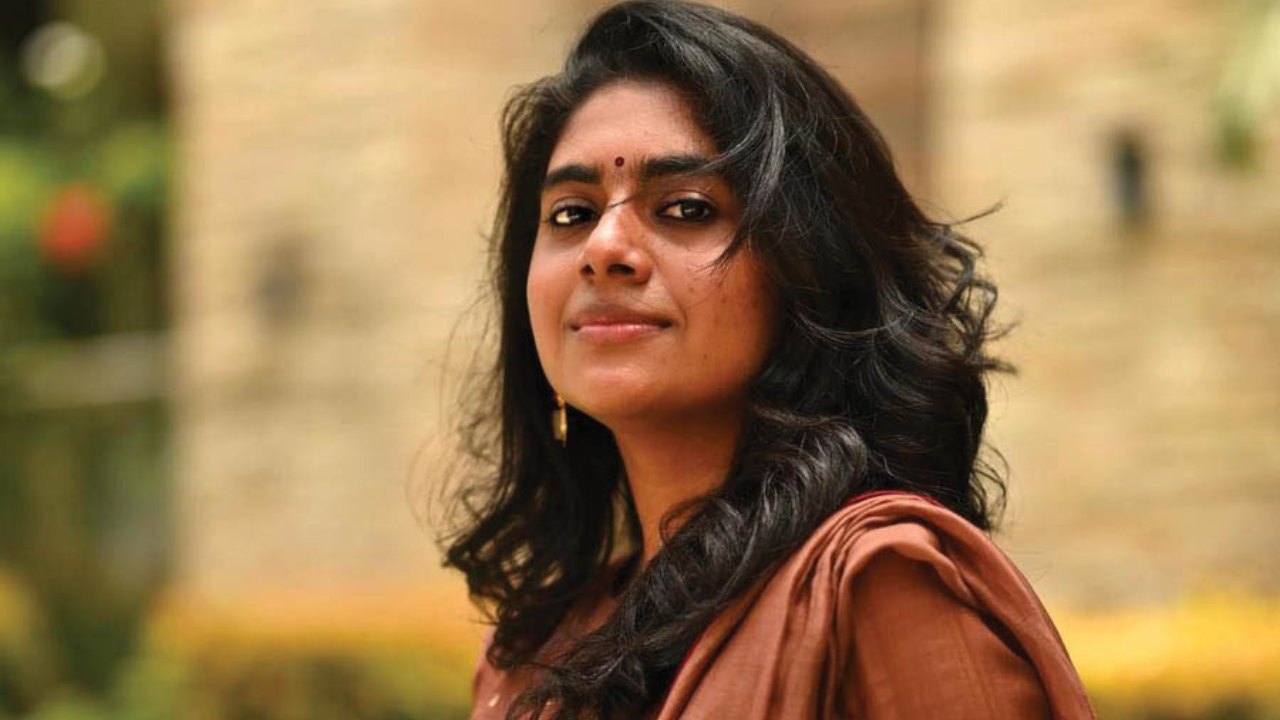Nimisha Sajayan is to Malayalam cinema what Vidya Balan is to Hindi cinema. Put her in any character she is that person. In the new Amazon serial Poached Nimisha is a fiercely dedicated environmentalist with a big Tusk on hand. And I do mean, Tusk. The series has fighting a fierce battle with elephant poachers.
So would the real Nimisha Sajayan please stand up?
“I am a very greedy actor. I want to explore everything. I want to play the villain, I want to portray an unhinged character, I want to be a part of rom-com films. I have done Jigarthanda 2X, which is an out-and-out commercial film,” says Nimisha
So what’s Nimisha’s comfort zone? “I would say it’s definitely natural cinema. Because I want to play characters that are more relatable. You know, when you watch a film, you should be able to connect with that character. However, I would like to explore everything as an actor.”
In Poacher Nimisha plays an ecologically conscious cop. She says it is vital for her to seek out a message in her films. “I personally have always been drawn towards films with a social message. The first thing I look for in a script is what message it conveys to the story and whether it will be discussed with the audience even after leaving the theater. I just want to be part of films that make people think, films that excite them and which they find relatable. I just want to stay true to what I do and not just be a character for the fun of it.”
Nimisha admits working on Poacher was an unexplored experience . “It was something I had never experienced before, which was an incredibly creative process. So, getting a chance to experience it live on a set was like nothing else. Richie Mehta is a very dedicated director, and I sensed it from the first time I met him and Debu dada(Dibyendu Bhattacharya). Just sitting with him and asking him anything about acting, seeing him in all the passion he has for his work, it hits differently. Roshan Mathew and I, we’ve done back-to-back 3 projects, so he is my comfort actor now, and Yohan on set. The experience of being surrounded by such esteemed individuals and talented actors was both enjoyable and highly educational at Richie Mehta’s Institute.”
Recalling how she agreed to be part of Poacher Nimisha says, “I remember meeting Richie for 20 minutes, and he didn’t say much other than the stories about elephants poached in a forest and the basics of the case. It was an immediate yes, and I think I just said yes within five minutes because I felt we needed to read the story out to the people, especially when this happened in Kerala. I was unaware of it, and I think most people still are. I’m a huge admirer of Richie Mehta; even if he had come to me for a small character, I would have said yes anyway. But, luckily, he offered me this very important character to work with. For me, getting the opportunity to play my character Mala just made it a lot more exciting.”
The actress who came into pan-India recognition with the Malayalam masterpiece The Great Indian Kitchen, feels there is a fundamental difference between shooting for a feature film and a webseries. “The difference is that the number of days shooting takes for a web series is much more than what we usually take for a Malayalam film. But for me, the biggest challenge was that in the morning, we were shooting Episode One scenes, and in the evening, we were shooting Episode five or six scenes. So keeping track of what was happening in between was very challenging. What Mala is going through, what Allan’s character is going through, what Debu dada’s character is going through, what the poachers go through. So that was a bit complicated for me. But anytime I had trouble with, say, an emotion or continuity, he was always there to help, and he (Richie) always had answers to any doubts I had. He had a clear-cut picture. So whether it was a question from the first episode or the fifth, he knew his characters well, and he was always ready with answers. So he made it much easier.”
Discussing the impact of The Great Indian Kitchen on her career , Nimisha observes, “I think before the release of The Great Indian Kitchen, my work was known to a limited audience in the north. After the release, I have experienced a significant increase in recognition, with a growing number of people becoming more familiar with my work now. The visibility has also led to a lot of exciting opportunities from the north. I did one Bengali film right after the release of The Great Indian Kitchen, then an English one, followed by a Marathi film, and now a Hindi one too. After watching The Great Indian Kitchen, many people were like, ‘It’s a very small issue,’ but it’s not for others. As actors, if we can represent those issues, it would be good because we have the opportunity to say something meaningful; otherwise, we will lose the chance. And I think as an actor, it’s essential to choose the right film; we need to go beyond these limitations. Cinema is art, and when it incorporates political or social issues, I think its value increases.”


